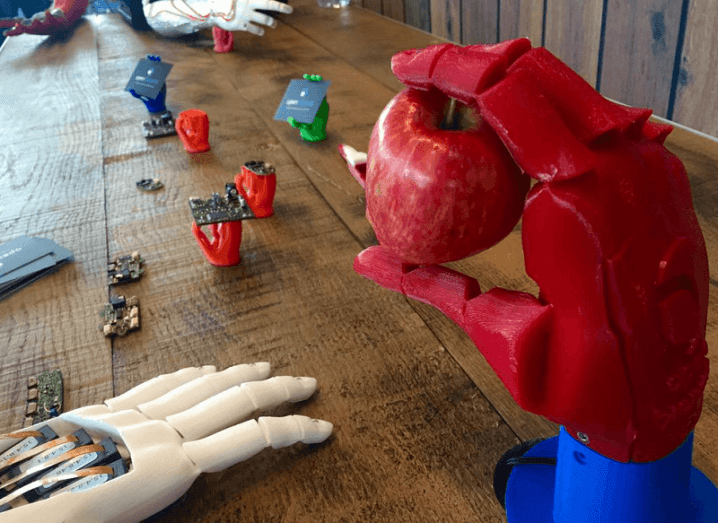-
Tips for becoming a good boxer - November 6, 2020
-
7 expert tips for making your hens night a memorable one - November 6, 2020
-
5 reasons to host your Christmas party on a cruise boat - November 6, 2020
-
What to do when you’re charged with a crime - November 6, 2020
-
Should you get one or multiple dogs? Here’s all you need to know - November 3, 2020
-
A Guide: How to Build Your Very Own Magic Mirror - February 14, 2019
-
Our Top Inspirational Baseball Stars - November 24, 2018
-
Five Tech Tools That Will Help You Turn Your Blog into a Business - November 24, 2018
-
How to Indulge on Vacation without Expanding Your Waist - November 9, 2018
-
5 Strategies for Businesses to Appeal to Today’s Increasingly Mobile-Crazed Customers - November 9, 2018
3D printed robotic hand wins UK James Dyson Award
A Plymouth graduate who started trying to make a better prosthetic hand while at university has won the UK’s 2015 James Dyson Award.
Advertisement
Current advanced prosthetics can cost from £3,000 to £60,000 and only last three to five years, but Gibbard’s model is entirely 3D-printed and is assembled from just four manufactured parts.
Although the current design can only help amputees with limb loss to their forearms, Gibbard and his team’s ultimate goal is to provide low-priced prosthetics to amputees with other needs as well. “I can 3D print a robotic prosthetic that hand amputees enjoy showing off for a fraction of the price”.
In winning the national award, Joel will receive £2,000 – which he will use in speeding up the prototyping process by purchasing a new 3D printer – and advances to the worldwide stage of the competition.
His start-up, Open Bionics, claims it will be able to make robotic hands in about 40 hours for less than £1,000. As well as opening and closing fingers the hand can also perform a fine pinch grip.
Although the user cannot feel what the fingers are touching, sensors built into the hand can tell when they are in contact with an object and adjust or limit the force that is exerted. What this means is that the owner can hold and use fragile objects like eggs without breaking them.
But higher end devices can cost patients up to $95,000, the Independent reports, while Gibbard’s inventions cuts that cost down to just under $5,000-not a small amount, but far more accessible than the usual cost, especially for children who need to replace their prosthetics as they grow.
“I’m a great believer in finding more efficient ways of doing things”. “Open Bionics opens doors to a community that might not have previously had access to advanced prosthetics”.
Advertisement
Led by Joel Gibbard, the company uses 3D printing techniques to quickly and affordably create bespoke prosthetics for amputees, building custom-fitted sockets in a matter of days what would take traditional prosthesis makers weeks.




























